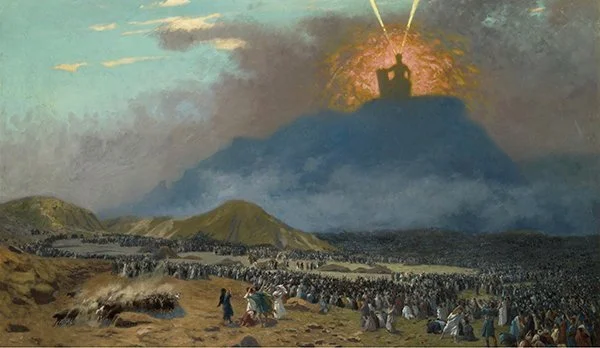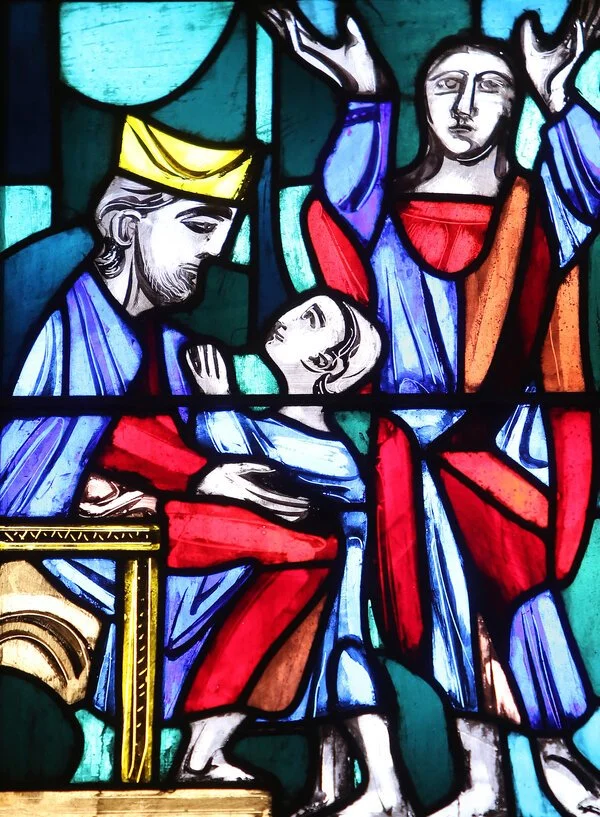
Photo by Vladislav Babienko on Unsplash
Disclosure: This post may contain affiliate links, meaning Beautiful Christian Life LLC may get a commission if you decide to make a purchase through its links, at no cost to you.
Have you ever had to make an important decision and felt stuck as to what to do? Perhaps you stood at a crossroads with two paths before you, and you didn't know which one to take.
You may have asked yourself questions like, Do I take this job or that job? Sell the house or stay? Trust the doctor or get a second opinion? Serve in this ministry or another? Send our children to this or that school? Have our parents move in or find them alternative living arrangements?
When my thyroid biopsy came back as inconclusive, the doctor recommended surgery. (I wrote about that here). He said it was the only way to know for certain whether the growth was cancerous or not. He gave me numbers and statistics (none of which I understood) and said we could remove the growth or wait and see, but he recommended surgery. I had a decision to make. Do I have the surgery? Or do I test and retest and wait and see? Do I trust the numbers and statistics? Do I trust the doctor?
I don't know about you, but when I have a decision to make, my mind is consumed with it. It vacillates back and forth between the options. It's all I can think about. I worry and fret and mull over it. I lie awake at night unable to sleep. I consider all the potential consequences to the choices. What I want most of all is for a clear answer to step up and knock me on the head. Because what I really fear is making the wrong choice.
And so I wondered, what is God's will in this? What does he want me to do?
How are God’s will and making decisions related to each other?
Theologians often refer to God's will in terms of his sovereign (decretive) will and his preceptive (or revealed) will. God's sovereign will refers to the fact that he ordains all things. Everything is under his control, including every detail of our lives. Nothing can or will happen outside of his will. He is never surprised or taken off guard by what happens. Whatever choice we make, we can be sure it is God's will.
The lot is cast into the lap, but its every decision is from the LORD. (Prov. 16:33)
We don't know God's sovereign will.
The secret things belong to the LORD our God, but the things that are revealed belong to us and to our children forever, that we may do all the words of this law. (Deut. 29:29)
We don't know his plan for us for tomorrow, next week, or next year. His secret will is not for us to know. Yet, as believers, we can take great comfort in the doctrine of God's sovereignty. That's because not only is God sovereign, but he is also our good Father who loves us. He always does what is right and good for us. Whatever decisions we make, we can be assured that God will use it for our good and his glory (Rom. 8:28-29).
God’s preceptive will is his revealed will in the Bible.
God’s preceptive will is the will that God wants us to know. Everything we need to know for living in this world is written in those pages. There's no missing information we have to seek out in mysterious unknown places. It's not hidden somewhere—like in a scavenger hunt—and we just have to find it. It's all there.
The Bible teaches us what is sinful and what is not. It tells us the purpose for our life: to glorify God. It tells us how to treat others, how to steward what he has provided, how to love our family, how to live and work and rest. Most of all, the Bible shows us our greatest need—redemption from sin—and reveals our great Savior, whose life, death, and resurrection are sufficient to free us from sin and enable us to live in righteousness.
God's word also teaches us about the Spirit who lives within us, producing the fruit of holiness and helping us to daily put sin to death. Ultimately, God's will for our life is that we grow in holiness—that we become more like Christ.
When we struggle with making a decision and ask, "What is God's will in this?" often we want to know what pleases God—what he desires from us. We want his direction. We want to know if he desires us to choose A over B or B over A. This is an area where we often get stuck when we have to make a decision.
We want to know the future before it happens.
Knowing the future is an area of God's will we can't know and don't need to know. The Bible is concerned with the moral decisions we make. It teaches us the way of holiness. The decisions we make that are not about moral decisions—such as, should we move to this or that city—are ones we simply need to make using the wisdom God has produced in us. We need to trust his sovereign will and obey his preceptive will. And the specific plans he has for our lives, we need to leave in his hands.
Obsessing over the future is not how God wants us to live, because showing us the future is not God's way. His way is to speak to us in the Scriptures and transform us by the renewing of our minds. His way is not a crystal ball. His way is wisdom. We should stop looking for God to reveal the future to us and remove all risk from our lives. We should start looking to God—His character and His promises—and thereby have confidence to take risks for His name’s sake. (Kevin DeYoung, Just Do Something: A Liberating Approach to Finding God’s Will [Moody Press, 2009], 39)
First, we need to know where wisdom is found.
So what should we do when we have to make a difficult decision? First, we need to know where wisdom is found. God's word tells us that wisdom originates in him. God is the source and fountain of wisdom. John 1:14 tells us that God's Word became flesh and dwelt among us. Jesus is wisdom incarnate. Isaiah prophesied about him,
And the Spirit of the LORD shall rest upon him, the Spirit of wisdom and understanding, the Spirit of counsel and might, the Spirit of knowledge and the fear of the LORD. (Isa. 11:2)
Paul tells us that Christ is our wisdom.
And because of him you are in Christ Jesus, who became to us wisdom from God, righteousness and sanctification and redemption. (1 Cor. 1:30)
He says something similar in Colossians 3:2.
Christ, in whom are hidden all the treasures of wisdom and knowledge.
When we don't know what to do, when we fail to do the right thing, when we freeze in fear over making a decision, we can be at peace because Christ has already interceded for us through his perfectly obedient life lived for us and perfect sacrificial death on our behalf. He also gave us his Spirit who is at work in us, helping us to desire wisdom, teaching us the way of wisdom through the Word, and enabling us to walk in it.
When we have a decision to make, we need to turn to God's word. As we read and study Scripture, we can ask ourselves: Is this choice sinful? By choosing this, am I doing something God has told me not to do or failing to do something God has told me to do? Does it conflict with God's calling on my life? Another question to ask is, will this choice bring God glory? Will it honor him?
We can also ask ourselves, What does the Bible tell me about Christ—who he is and what he has done? How can I apply these gospel truths to my decision making? We can be assured that as we study God’s word, and as our minds are conformed to it, we will discern what God's will is:
Do not be conformed to this world, but be transformed by the renewal of your mind, that by testing you may discern what is the will of God, what is good and acceptable and perfect. (Rom. 12:2)
Secondly, we should always seek God in prayer about our decisions.
We should ask our heavenly Father for wisdom and discernment. We should ask that our choices and actions bring him glory. As Paul prayed for the Ephesians, we can pray for spiritual wisdom, seeking to know and understand the hope we have in the gospel,
that the God of our Lord Jesus Christ, the Father of glory, may give you the Spirit of wisdom and of revelation in the knowledge of him, having the eyes of your hearts enlightened, that you may know what is the hope to which he has called you, what are the riches of his glorious inheritance in the saints, and what is the immeasurable greatness of his power toward us who believe, according to the working of his great might that he worked in Christ when he raised him from the dead and seated him at his right hand in the heavenly places. (Ephesians 1:17-20)
And, as Jesus taught us, we should pray that God's will would be done (Matt. 6:10).
Thirdly, we should ask others who are wise in God’s word to advise us in making decisions.
God has not left us alone. He's given us brothers and sisters in the body of Christ who can give us the wisdom they have gleaned from Scripture. Many older and wiser believers have had to make difficult decisions in their lives, and there is much we can learn from them:
Without counsel plans fail, but with many advisers they succeed. (Prov. 15:22; see also Titus 2)
I remember a college professor once talking to our class about choosing between A and B. In the example he gave, it was the choice between attending two colleges. He said that if a choice is not sinful, if we have prayed and sought God's word for wisdom, as well as the wisdom of others, then we just make a choice. We simply move forward.
Such a choice is not a moral one (unless of course, one choice is sinful or would keep us from glorifying God). We make our decision and trust that God will use the decision for his glory and our good. We rest in his sovereign control over all things because we know that he is good and loves us. We remember the gospel and who we are in Christ, knowing that nothing can separate us from God's love.
In the end, I chose to have surgery. And I'm thankful to report that the growth was not cancerous. Though it wasn't an easy decision to make, the process of thinking and praying through the decision reminded me of my need for Christ, my dependence upon him, and his daily provision of grace for me. I rested in the truth of his sovereignty and that nothing would happen apart from his will for me.
I am certain that more difficult decisions loom on the horizon for me, as they do for all of us. But God has provided all we need for the journey, and we can move forward in confidence, not in ourselves and our own wisdom but in the wisdom of Christ revealed to us in God’s word.
Related Articles:
Recommended:
Idols of a Mother’s Heart (Focus for Women) by Christina Fox
This article is adapted from “God’s Wisdom and Decision Making” at christinafox.com.
from Blog - Beautiful Christian Life https://ift.tt/g5okOBw
via IFTTT














